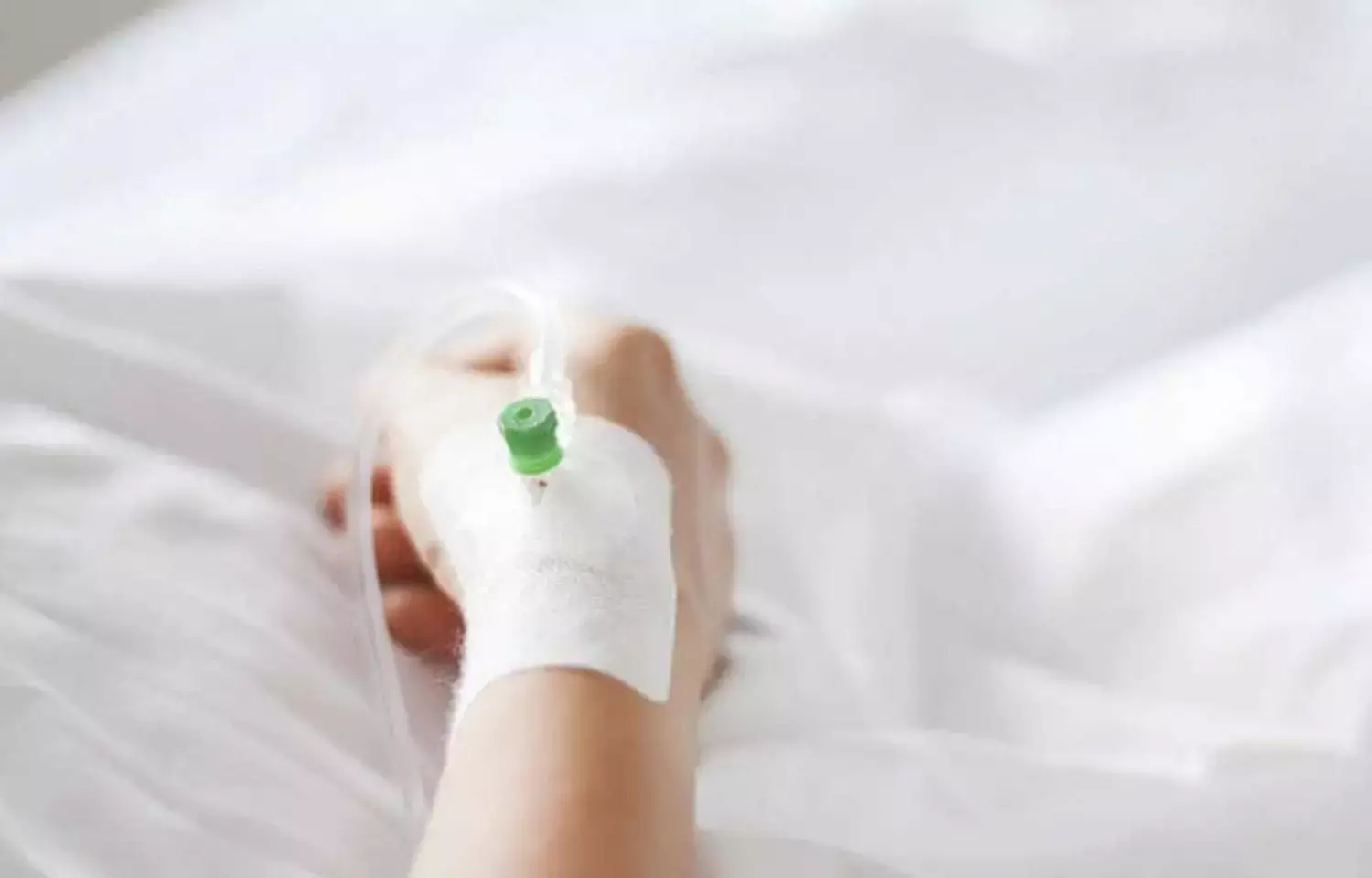- Home
- Medical news & Guidelines
- Anesthesiology
- Cardiology and CTVS
- Critical Care
- Dentistry
- Dermatology
- Diabetes and Endocrinology
- ENT
- Gastroenterology
- Medicine
- Nephrology
- Neurology
- Obstretics-Gynaecology
- Oncology
- Ophthalmology
- Orthopaedics
- Pediatrics-Neonatology
- Psychiatry
- Pulmonology
- Radiology
- Surgery
- Urology
- Laboratory Medicine
- Diet
- Nursing
- Paramedical
- Physiotherapy
- Health news
- Fact Check
- Bone Health Fact Check
- Brain Health Fact Check
- Cancer Related Fact Check
- Child Care Fact Check
- Dental and oral health fact check
- Diabetes and metabolic health fact check
- Diet and Nutrition Fact Check
- Eye and ENT Care Fact Check
- Fitness fact check
- Gut health fact check
- Heart health fact check
- Kidney health fact check
- Medical education fact check
- Men's health fact check
- Respiratory fact check
- Skin and hair care fact check
- Vaccine and Immunization fact check
- Women's health fact check
- AYUSH
- State News
- Andaman and Nicobar Islands
- Andhra Pradesh
- Arunachal Pradesh
- Assam
- Bihar
- Chandigarh
- Chattisgarh
- Dadra and Nagar Haveli
- Daman and Diu
- Delhi
- Goa
- Gujarat
- Haryana
- Himachal Pradesh
- Jammu & Kashmir
- Jharkhand
- Karnataka
- Kerala
- Ladakh
- Lakshadweep
- Madhya Pradesh
- Maharashtra
- Manipur
- Meghalaya
- Mizoram
- Nagaland
- Odisha
- Puducherry
- Punjab
- Rajasthan
- Sikkim
- Tamil Nadu
- Telangana
- Tripura
- Uttar Pradesh
- Uttrakhand
- West Bengal
- Medical Education
- Industry
Iron hydroxide adipate tartrate supplementation effective against iron deficiency anemia in young children

A new study published in Lancet eClinical Medicine, it was shown that daily iron hydroxide adipate tartrate (IHAT) supplementation was safe and effective in treating iron deficient anaemia in young children, with a statistically significant decreased incidence of moderate-to-severe diarrhea compared to standard-of-care (ferrous sulphate).
Iron deficiency (ID) and ID anemia (IDA) are still the most frequent forms of micronutrient malnutrition in the world today. Worldwide, it is estimated that IDA affects 1.2 billion individuals, the majority of whom are children and women from resource-poor countries, and that it causes a loss of 35 million DALYs. As a result, Nuredin I. Mohammed and colleagues undertook the IHAT-GUT study, which evaluated the effectiveness and safety of a new nano iron supplement, iron hydroxide adipate tartrate, a dietary ferritin analogue, for the treatment of IDA in children under the age of three.
Children with IDA were randomly allocated (1:1:1) to receive either IHAT, ferrous sulphate (FeSO4), or placebo daily for 3 months in this single-country, randomized, parallel, double-blind, placebo-controlled, non-inferiority Phase II research in The Gambia (85 days). The daily iron dose for FeSO4 was 12.5 mg Fe equivalent, whereas the anticipated dose with equal iron-bioavailability for IHAT was 12.5 mg Fe equivalent (20 mg Fe). The primary efficacy objective was a composite of haemoglobin response at day 85 and iron deficit repair.
The non-inferiority margin in response probability was 0.1 absolute difference. The major safety outcome was moderate-severe diarrhoea, which was measured as incidence density and prevalence during the course of the three-month intervention. Hospitalization, acute respiratory infection, malaria, iron handling markers, treatment failures, longitudinal prevalence of diarrhoea, inflammatory markers, and incidence density of bloody diarrhoea are among the secondary outcomes mentioned here. The primary analyses were per-protocol (PP) and intention-to-treat (ITT).
The key findings of this study were:
Between November 2017 and November 2018, 642 children (214 each group) were randomly assigned to the trial and included in the ITT analysis; the PP population included 582 children.
The primary effectiveness goal was attained by 50/177 (28.2%) children in the IHAT group, 42/190 (22.1%) in the FeSO4 group, and 2/186 (1.1%) in the placebo group.
Diarrhoea prevalence was comparable across groups, with 40/189 (21.2%) children in the IHAT group experiencing at least one episode of moderate-severe diarrhoea over the 85-day intervention, compared to 47/198 in the FeSO4 group and 40/195 in the placebo group.
The incidence density of moderate-severe diarrhoea in the IHAT group was 2.66 and 3.42 in the FeSO4 group.
There were 143/211 children in the IHAT group, 146/212 in the FeSO4 group, and 143/214 (66.8%) in the placebo group who experienced adverse events (AEs).
There were 213 diarrhoea-related AEs in total, with 35 (28.5%) instances reported in the IHAT group, 51 (41.5%) cases in the FeSO4 group, and 37 cases in the placebo group.
Reference:
Mohammed, N. I., Wason, J., Mendy, T., Nass, S. A., Ofordile, O., Camara, F., Baldeh, B., Sanyang, C., Jallow, A. T., Hossain, I., Faria, N., Powell, J. J., Prentice, A. M., & Pereira, D. I. A. (2023). A novel nano-iron supplement versus standard treatment for iron deficiency anaemia in children 6–35 months (IHAT-GUT trial): a double-blind, randomised, placebo-controlled non-inferiority phase II trial in The Gambia. In eClinicalMedicine (p. 101853). Elsevier BV. https://doi.org/10.1016/j.eclinm.2023.101853
Neuroscience Masters graduate
Jacinthlyn Sylvia, a Neuroscience Master's graduate from Chennai has worked extensively in deciphering the neurobiology of cognition and motor control in aging. She also has spread-out exposure to Neurosurgery from her Bachelor’s. She is currently involved in active Neuro-Oncology research. She is an upcoming neuroscientist with a fiery passion for writing. Her news cover at Medical Dialogues feature recent discoveries and updates from the healthcare and biomedical research fields. She can be reached at editorial@medicaldialogues.in
Dr Kamal Kant Kohli-MBBS, DTCD- a chest specialist with more than 30 years of practice and a flair for writing clinical articles, Dr Kamal Kant Kohli joined Medical Dialogues as a Chief Editor of Medical News. Besides writing articles, as an editor, he proofreads and verifies all the medical content published on Medical Dialogues including those coming from journals, studies,medical conferences,guidelines etc. Email: drkohli@medicaldialogues.in. Contact no. 011-43720751


